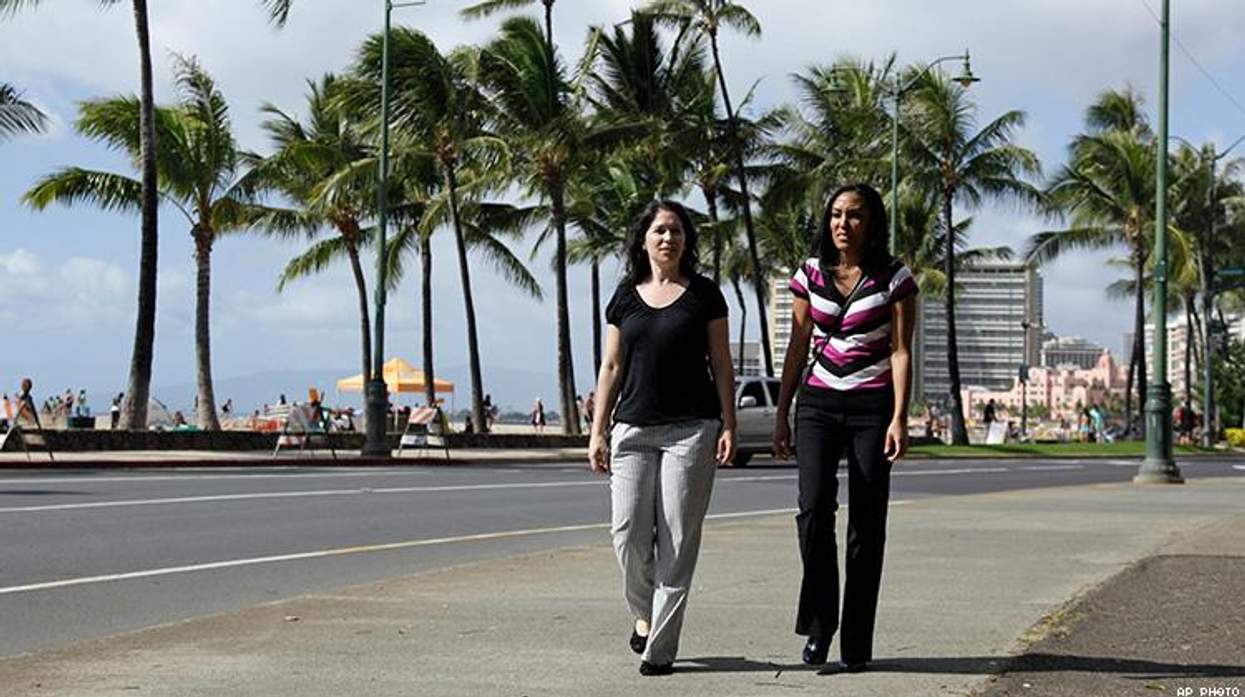The Supreme Court won't hear an appeal by a Hawaii bed-and-breakfast that refused lodging to a lesbian couple, therefore letting stand a lower court's ruling that the B&B violated state civil rights law and doesn't have a right to discriminate.
Diane Cervelli and Taeko Bufford of Long Beach, Calif., sought to make reservations at the Honolulu B&B in 2007, asking for a room with one bed. Owner Phyllis Young originally said there was a room available, but when Cervelli said she was bringing a same-sex companion, Young asked if they were lesbians. The owner said she was uncomfortable having lesbians in her home because of her Catholic religious beliefs.
Represented by Lambda Legal, the couple sued in 2011, and the Hawaii Civil Rights Commission joined in their case. The First Circuit Court of Hawaii ruled in their favor in 2013 and ordered Young to cease discriminating against same-sex couples. The state's Intermediate Court of Appeals upheld that ruling in February 2018, and in July the Hawaii Supreme Court declined to hear a further appeal from the B&B.
But in October, Aloha B&B filed a petition for review with the U.S. Supreme Court, "citing a First Amendment right to refuse service to same-sex couples for religious reasons," the Washington Blade reports. The business also claimed it was denied due process under the Fourteenth Amendment because Young wasn't didn't receive sufficient notice that the civil rights law would apply to her operation.
"The Commission officially labeled her religious beliefs unlawful 'discrimination' despite the fact that Mrs. Young declines to rent bedrooms in her family home to any romantic partners other than a married man and women -- Hawaii's only recognized form of marriage in 2007," said the petition. "For this 'crime' of being a faithful Catholic, the Commission sought punitive damages and statutory penalties that could cause Mrs. Young to lose her home."
The high court denied the petition Monday without saying why it was doing so, as is usually the case.
Peter Renn, a lawyer in Lambda Legal's Western Regional Office, said the denial represents a victory for nondiscrimination laws. "The Supreme Court's decision to let the lower court ruling stand reaffirms that the freedom of religion does not give businesses a right to violate nondiscrimination laws that protect all individuals from harm, whether on the basis of race, gender or sexual orientation," he told the Blade. "The Supreme Court declined to consider carving out an exception from this basic principle when a business discriminates based on the sexual orientation of its customers. LGBT people deserve an equal right to go about their everyday life without the fear that discrimination waits for them around the corner."
It's been almost a year since the Supreme Court ruled in another "license to discriminate" case, Masterpiece Cakeshop v. Colorado Civil Rights Commission. Masterpiece Cakeshop owner Jack Phillips had refused to create a wedding cake for a same-sex couple, saying it would conflict with his Christian beliefs. The commission found he had violated state antidiscrimination law, and Colorado courts agreed, but the Supreme Court ruled in his favor because, the majority of justices said, the commission had shown insufficient respect for his beliefs. It vacated the commission's ruling but did not create a broad license to discriminate. Several similar cases are being appealed to the court, and it remains to be seen if it will decide to hear them.
The anti-LGBTQ Alliance Defending Freedom, which represented Phillips, had represented Young and Aloha B&B during some of the legal proceedings, but a private lawyer, James Hochberg, filed the Hawaii business's petition to the Supreme Court. The Blade sought comment from him, but he had not responded by press time.




































































Charlie Kirk DID say stoning gay people was the 'perfect law' — and these other heinous quotes